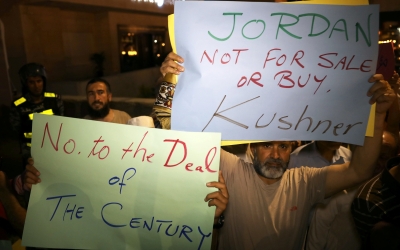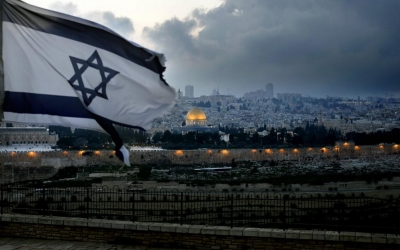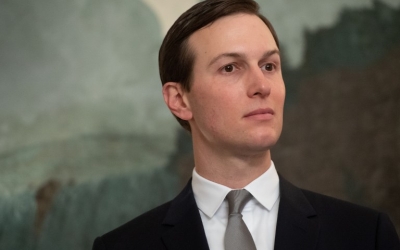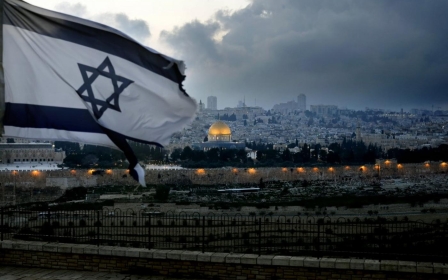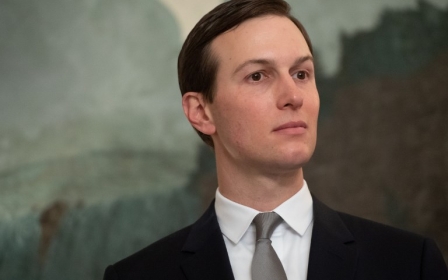Egypt, Jordan, Morocco to attend US-led Palestinian conference in Bahrain: US officials

Egypt, Jordan and Morocco have informed the Trump administration they will attend a US-led conference in Bahrain this month on proposals for boosting the Palestinian economy as part of a US peace plan, officials in Washington said on Tuesday.
Egypt and Jordan's participation is considered especially important since historically they have been key players in Israeli-Palestinian peace efforts and are also the only Arab states to have reached peace agreements with Israel.
However, Palestinian leaders' decision to boycott the 25-26 June conference in Manama has raised doubts about its chances for success.
They have shunned US President Donald Trump's "deal of the century," which Palestinians see as likely to be heavily tilted in favour of Israel and denying them a state of their own.
In a letter dated 10 June to foreign diplomats in the Palestinian areas, Saeb Erekat, secretary-general of the Palestine Liberation Organisation (PLO), said: "Our presence in Manama would only be used as a legitimisation of the initiative that aims at depriving us of our rights."
Last month, Ahhmed Majdalani, a member of the executive committee of the PLO, said: "There will be no Palestinian participation" at the meetings.
"Any Palestinian who would take part would be nothing but a collaborator for the Americans and Israel," he said.
Muslim Brotherhood and other political activists held protests near the US embassy in Amman last month denouncing the "deal of the century" and calling on Jordan not to attend the Bahrain conference.
The demonstrations came during a visit by Jared Kushner, Trump's son-in-law and a chief architect of the plan, to the Jordanian capital to convince Jordan to attend.
US officials vague
The economic components of the proposal are expected to be unveiled in Bahrain as the first step in the plan's rollout.
Saudi Arabia, Qatar and the United Arab Emirates have previously confirmed their attendance, a White House official said.
The official declined to say what level of representation the countries would send.
US officials have said they were inviting economic and finance ministers, as well as business leaders from the region and around the world, to discuss investment in the troubled Palestinian economy in the besieged Gaza Strip and occupied West Bank.
Global financial bodies including the International Monetary Fund and World Bank also plan to be present.
US officials have been vague about the timing for the second phase of their initiative, which would focus on the release of proposals for resolving political issues at the core of the Israeli-Palestinian conflict.
With Israel heading for new elections in September after Prime Minister Benjamin Netanyahu failed to meet a deadline to form a government, uncertainty is expected to further delay the full release of the plan.
'Not particularly original'
Palestinians have accused the Trump administration, which has fervently backed Israel since it came into office in early 2017, of seeking to use an endless negotiations process to help the Israeli government cement its control over the occupied Palestinian territories.
Most experts are sceptical the Trump administration can succeed.
US Secretary of State Mike Pompeo is worried the plan will be considered "unworkable," and might not gain traction, US media reported earlier this month.
"It may be rejected. Could be in the end, folks will say, 'It's not particularly original, it doesn't particularly work for me,' that is, 'It's got two good things and nine bad things, I'm out,'" the Washington Post reported, citing an audio recording of the meeting it had obtained.
The Palestinian leadership has rejected diplomatic contacts with the Trump administration since it recognised Jerusalem as Israel's capital in late 2017 and then moved the US embassy there from Tel Aviv.
Palestinians want the eastern part of the city, captured by Israel in the 1967 war and annexed in a move not recognised internationally, as their future capital.
Middle East Eye delivers independent and unrivalled coverage and analysis of the Middle East, North Africa and beyond. To learn more about republishing this content and the associated fees, please fill out this form. More about MEE can be found here.


